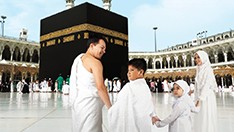What is waqf?
From its original language, waqf means ‘to stop’ or ‘to hold’. Meaning, we hold our right of ownership upon our properties, for public needs. And the properties cannot be sold. The waqf management should be done through an agreement that involves the owner of property.
What is the term and condition for waqf?
One who does waqf is called wakif. The wakif must have the capacity to become bound with a contract, so he/she must be an adult, of sound mind, capable of handling financial affairs, and not be under interdiction for bankruptcy.
Beside wakif, there must be a nadzir who is responsible in managing the waqf. Nadzir can be a person, an organization, or a legal entity. In Indonesia, we have an official board that manages waqf, Indonesian Waqf Board.
What can be included as waqf?
There are two forms of waqf; economic assets and social assets. Economic assets include fixed assets, rental income, shares in companies or businesses, function facilities, and others based on shariah conditions and rules in Indonesian law (section 16, Act no. 41, 2004).
Social assets include fixed or capital assets such as school, mosque, hospital, sanitation facilities, hostels, and others based on shariah conditions and rules in Indonesian law (section 16, Act no. 41, 2004).
It’s important for us to know that the religious reward of waqf is bigger and more everlasting than infaq or shodaqoh because it can be used in an unlimited time even when we already pass away, as long as the waqf is still managed and useful for others.We can insure while performing waqf with assurance, now and later through Asuransi Brilliance Hasanah Maxima.






